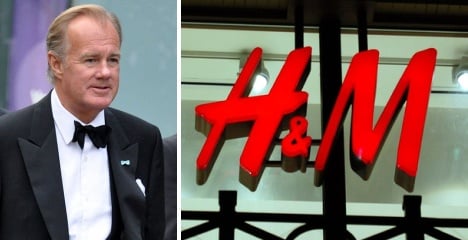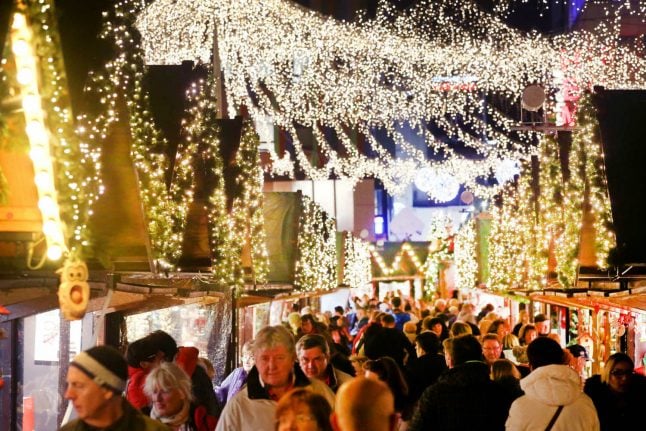Persson came in at number 13 in the 2011 Forbes rankings, with an estimated fortune of around $24.5 billion.
Since first being created by Erling Persson in 1947, the H&M clothing empire continues to expand internationally with new stores opened in Turkey and Israel in 2010 and Croatia and Romania planned for 2011.
The younger Persson has led the company since 1982.
His sister Liselott Persson is the third highest-ranking Swede on the Forbes list, coming in at spot 323 with an estimated fortune of $3.4 billion.
Packaging matriarch Birgit Rausing of TetraPak fame is found at number 49 with an estimated fortune of $14 billion, followed by brother-in-law Hans Rausing at number 81 with $10 billion.
Hans sold his part of the Tetra Laval packaging company to brother Gad Rausing in 1995.
In 1980 the company headquarters were moved to Switzerland and the Rausing family has long been based outside of the Swedish borders in an effort to escape the country’s high taxes.
Ikea mogul Ingvar Kamprad, who was the highest ranking Swede last year, saw his standing among the global wealth elite drop precipitously.
The head of the flat pack furniture giant fell from place 11 to 162 and now has an estimated fortune measured at a mere $6 billion after lawyers showed that Ikea is owned by a foundation in tax haven Lichtenstein, which Kamprad created and now heads.
The foundation receives royalties tax free on all sales that every Ikea store must pay to the parent company for the right to use the concept.
The foundation is valued at $12 billion, but has so far only paid out $60 million to charity, according to Forbes.
Kamprad now gets his fortune from his investment firm Ikano.
Among the rest of the Swedes featured on the list is Antonia Johnsson at 152 with a fortune estimated at $6.5 billion.
She heads the Axel Johnsson Group, which has interests in everything from energy to telecom and real estate.
Fredrik Lundberg, the head of L.E Lundberg Företagen and Melker Schorling, the chairman and 85 percent owner of Melker Schorling AB, share place 393 with $2.9 billion each.
Security giant Gustaf Douglas, with $2.6 billion, finds himself in spot 440, while hedge fund operator Thomas Sandell comes in at place 1057 with a comparatively modest $1.1billion.
The world’s overall richest person for the second year running is Carlos Slim Helu of Mexico, worth an estimated $74 billion, followed by IT mogul Bill Gates with $56 billion.





 Please whitelist us to continue reading.
Please whitelist us to continue reading.
Member comments